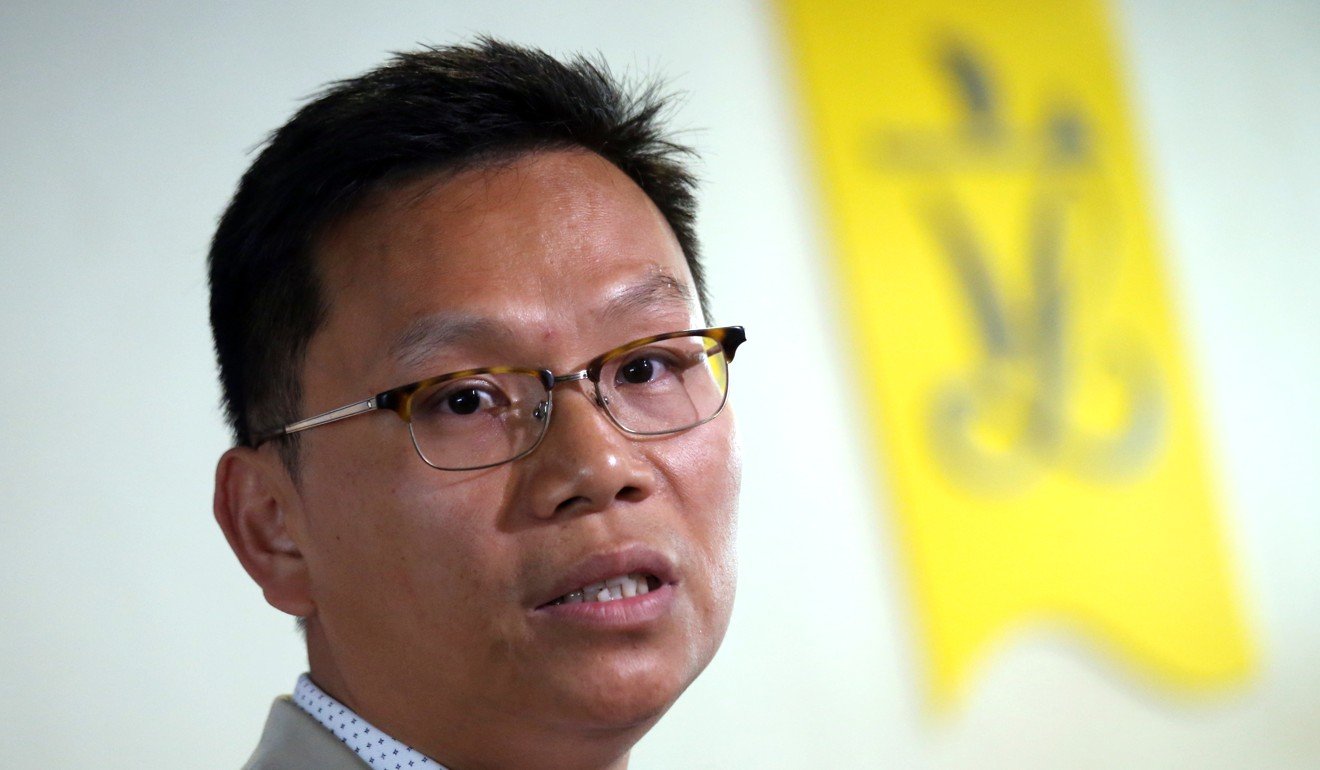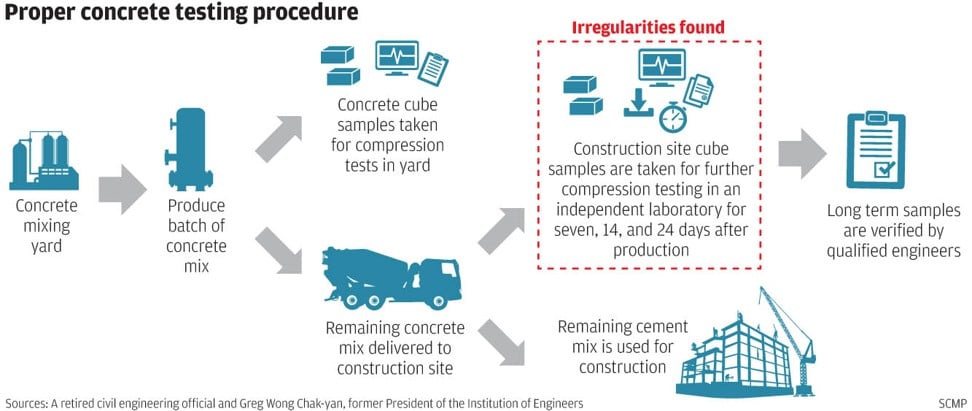
Hong Kong officials not suspected over fake concrete tests on bridge, graft-buster says
Lawmakers and experts urge government to conduct safety checks on other projects involving contractor at centre of scandal
In an unusual move, Hong Kong’s anti-graft watchdog on Wednesday clarified that no government officials were suspected of involvement in a corruption scandal at one of the city’s biggest infrastructure projects.
“There is no information or evidence to suggest that any public officers, contractors or material suppliers (or their personnel), other than the CEDD contractor and its staff members, were involved in the above malpractice,” the ICAC said.
Lawmakers and experts urged the government to conduct safety checks on other projects involving the contractor, which has been identified as Jacobs China, under the US-based Jacobs Engineering Group. It did not respond to media inquiries on Wednesday.
Under pressure to give a full account of the scandal, top officials and engineering experts will address safety concerns on Thursday.
Graft-busters arrested two of the contractor’s senior executives and 19 employees last week after discovering that compression tests on concrete samples had not been completed within the required time frame and site laboratory staff might have adjusted the test times to cover up the irregularities. The malpractice was believed to have started in early 2015, raising concerns about the safety implications over a two-year period.
Director of Civil Engineering and Development Lam Sai-hung said: “We understand that the public is very concerned about the suspected faking of concrete test reports, and the safety issue of the Hong Kong-Zhuhai-Macau bridge. The government is highly concerned too.”
Ben Chan Han-pan, chairman of the Legislative Council’s transport panel, urged the government to conduct safety tests at other projects handled by the same contractor, which he named and described as a “popular” company for government projects.
He noted that Jacobs China had also conducted inspections for the Guangzhou-Shenzhen-Hong Kong express rail link project for the government.

“The authorities should tell us whether there are the same problems in similar tests [handled by the same contractor] in other projects,” he said. “Should there be a countercheck on those works?”
An announcement on the company’s website, dated April 2012, said Jacobs Engineering Group had been awarded a HK$85.2 million contract by the CEDD to provide management and operating services for the government laboratory in Siu Ho Wan on Lantau.
The scope of its work included operating the laboratory, staffed by 51 people, for about four years to provide construction materials compliance testing services for the bridge and other public works projects.
The Jacobs China website lists successful bids for other government projects, including engineering services for the design and site investigation phase of the Hong Kong section of the cross-border railway in 2009.
“We don’t know whether the staff involved were just being lazy, or if there were problems with the concrete and the tests were faked to cover up,” Chan said.
A retired senior civil engineering official, who declined to be named, said reviews on other sites by the contractor should be done if the concrete in question was found to be substandard.
“If the [test faking] problem was repeated frequently, it might reflect monitoring issues … or if part of the bridge has to be strengthened or rebuilt, the credibility of the company could be in question,” he said.
Democratic Party lawmaker Lam Cheuk-ting said the contractor had breached trust and safety checks were essential.
A government spokesman said on Tuesday that follow-up concrete strength tests conducted so far had found nothing abnormal and an independent body would perform more tests in the coming weeks.




